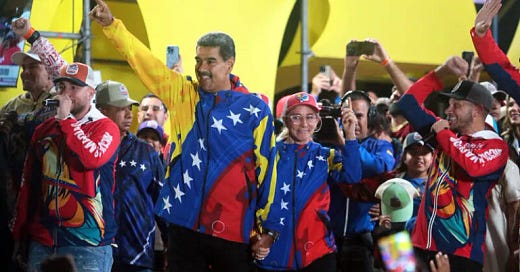Maduro wins elections in Venezuela
The destabilizing strategy of the Latin American Right, the USA, and the media
Nicolás Maduro were re-elected President of Venezuela on July 28, 2024, receiving 51.2% of the vote, defeating the far-right candidate Edmundo González, who received 44.2%. Maduro was the candidate of a coalition of thirteen political organizations known as the Simón Bolívar Great Patriotic Pole as well as the leader of the United Socialist Party of Venezuela. The results were announced shortly after 12:00 a.m. on July 29 by the National Electoral Council when 80% of the votes were counted, which noted that the trend favoring Maduro was irreversible. Eight other candidates—including candidates of the right, center-right, and center-left—received 4.6% of the votes cast. A total of 21,620,705 citizens voted—a voter participation rate of 59%—in more than fifteen thousand voting districts distributed throughout the country. In total, ten presidential candidates, thirty political parties, and 1300 international and national observers par…



